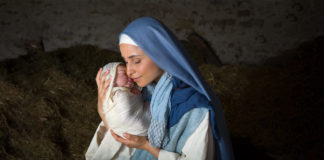1,000 years later
Christianity is fundamentally built on the belief that the life and mission of Jesus Christ on earth were a continuation and fulfilment of God’s earlier revelation, known as the Old Testament.
The Church, a (lost) point of reference
Founded on the separation of political and religious authority and shaped by the presumed liberating power of reason, contemporary society is driven by faith in progress as a substitute for faith in God. At the heart of this secularized world, a pressing question emerges: what role does the Church still play today?
The face of a love that waits at the gates of Heaven
With Jesus, it was always different. For most of my life, I could only see God the Father through a legalistic filter. But with Jesus, it was always different.
Jesus, the commandments, and legalism
Over the centuries, strong but artificial tensions have been created between the Gospel of Paul (proclaimed especially by Augustine and many Protestants) and the "legalism" of the biblical writers James, Peter, Jude, and so on, which Catholic and Orthodox theologians have usually defended. What is at stake in these tensions is the authority of God's commandments and thus the duty or obligation to...
Great expectations in friendship
How can we protect ourselves against expecting too much of our friendships? Can we do something to prepare for the disappointment? And what does one do to deal with it?
What if I were born into another religion?
This question is asked by critics who want to point out the social, cultural and contextual nature of the Christian religion, and its relativism, presenting it as a product of society rather than of revelation.
Is God with me?
"When I was little, I felt that God was with me, but now I feel so lonely! I wonder if God really was with me back then".
Born of a virgin
When Larry King was asked who he would most like to interview among all the famous characters of history, his answer was clear: "Jesus Christ". The talk show host wanted to know if Christ had indeed been born of a virgin. "The answer to that question would define history for me,"[1] King said.
Hudson Taylor | When the mountains move aside
Hudson Taylor undertook eleven journeys between Europe and China, and his mission prospered. He had one of the most complex and successful visions for evangelism.
Is there life after death?
As a media and communications graduate, I love stories in all their forms, but I’ve always held a special place in my heart for science fiction. Exotic planets, alien races, unique extrapolations of scientific theory and bizarre visions of the future of our world—no other genre captures my imagination in quite the same way.
Camping at the end of the world
I still remember May 21, 2011, like it was yesterday. Thousands of kilometres away in Boulder, USA, an evangelist named Harold Camping, president of the popular ministry Family Radio, was in the news spotlight. He had predicted that on May 21, more than 200 million Christians all around the world would be raptured away to heaven and that five months later, the world would end.
The end of the world, according to Jesus’ teaching
Much has been written about the end of the world, but, if this end coincides with Christ’s second coming, then we should enquire from Jesus Himself what he teaches about His return. We will do this by using the material of the Christian Gospels.
Pray as you can
I’m going to be honest with you. I find prayer really hard. If I had to give reasons for all my tears over the past few years, most of them have come during conversations with God.
Chernobyl: The cost of lies
On April 26th 1986, reactor 4 at Chernobyl nuclear power plant in Ukraine exploded. The effects were catastrophic—it was the worst nuclear disaster in history. The explosion let out the equivalent of 500 Hiroshima bombs-worth of radiation, and the area around Chernobyl—including the town of Pripyat—is now uninhabited. It will be unsafe to live there for the next 20,000 years.
The face that transforms me
Every time I look through the lens of a microscope, I am struck by the realisation that beyond what the naked eye can see lies a universe far deeper and richer.


























